Nova festival attack, one year on: ‘There is no time to think, no time for trauma’
As the world marks a year since a festival filled with peace-loving people dancing to trance music became the site of a bloody massacre. Here, Nicole Lampert talks to some of the survivors of the 7 October attack who feature in a chilling BBC film made almost entirely from footage recorded on the day
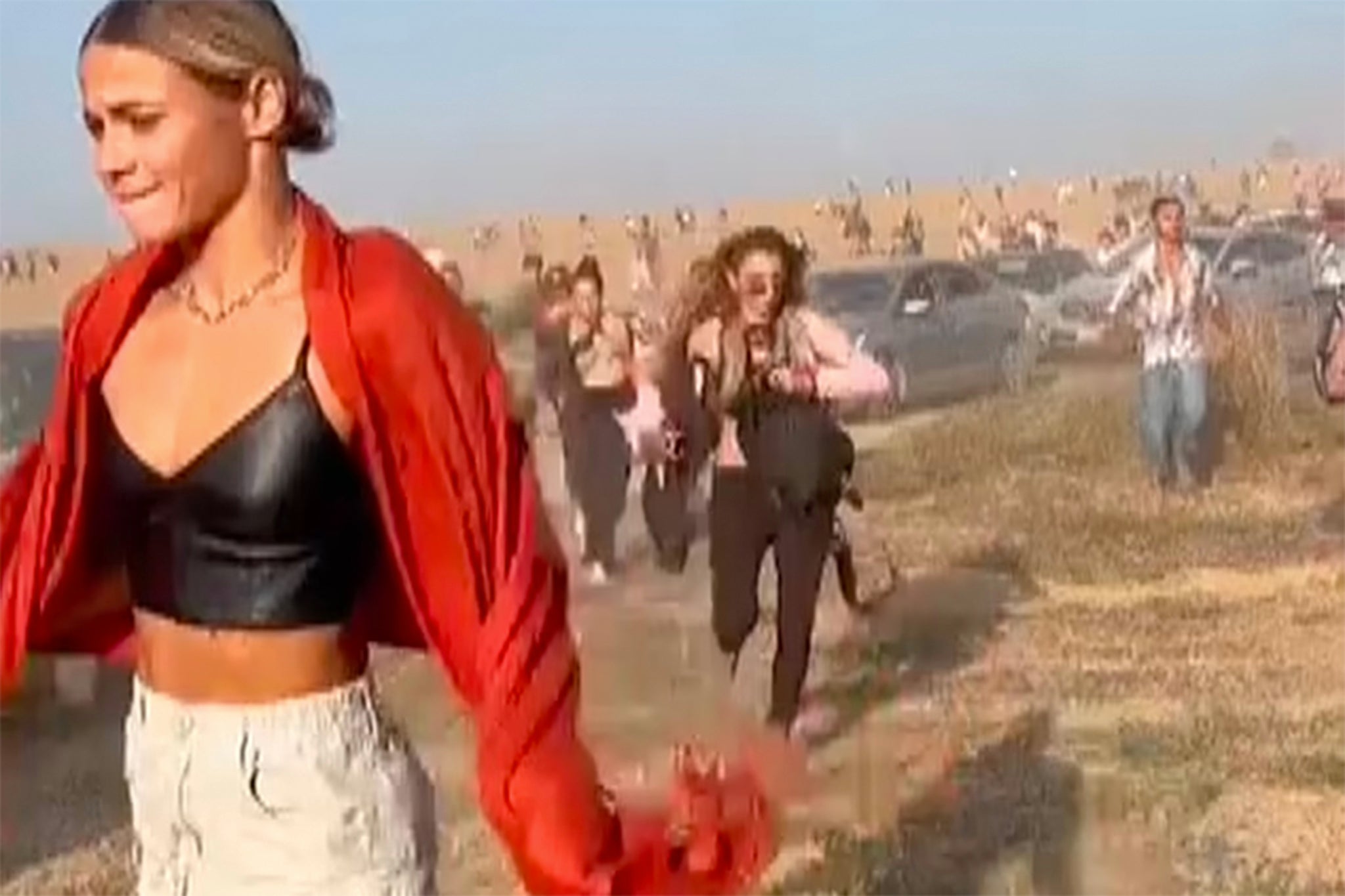
Ziv Abud’s hands shake as she speaks. As a marketing executive who loved to go to trance parties at weekends, she never wanted or expected to be in the public eye. But as a Nova festival survivor and also the girlfriend of Eliya Cohen, now a hostage, she has found herself thrust into the limelight to remind people about what happened on 7 October.
She is so fragile. She never thought she would be travelling the world, retelling the story of the moment last year when her life, and the lives of so many others, changed beyond recognition. Tears spring to her eyes frequently as we speak in a London hotel, shortly before the British premiere of a BBC documentary that recounts those events in blood-curdling detail.
Among those killed on 7 October, in the same shelter where Ziv and her boyfriend were hiding, were her beloved nephew Amit and his girlfriend Karin. Ziv tells me that she counted around 60 of the 364 killed at the Nova festival as friends.
Twelve months have passed, but the pain from that day still feels as raw as ever, like it happened yesterday. Ziv goes to bed crying, wakes up crying, and spends the rest of her day talking about Eliya, her boyfriend of seven years, whom she refers to as her fiance after learning through friends that he was about to propose on a planned trip to Thailand.
“I try to keep busy all the time, so there is no time to think, no time for trauma,” says the 27-year-old. “I am like a robot. Sometimes, when I sleep, I dream about what happened – the nightmare. But I have to put that to one side, because I am focused on doing everything I can to bring Eliya home. I have a mission, and only when that mission is finished will I take care of myself.”
Ziv’s heartbreaking story is one of nearly a dozen told in a documentary about the Nova festival that is featured in the BBC film Surviving October 7th: We Will Dance Again, directed by Yariv Mozer, is made almost entirely from footage recorded by either the young festival-goers or the Hamas militants who hunted them.
It is an uncompromising look at how a festival filled with peace-loving people dancing to trance music became the site of a bloody massacre – one that prompted Israel to launch a fierce retaliatory response, which a year later shows no signs of ending and has killed tens of thousands more.
Ziv and her boyfriend Eliya – an events organiser – were part of the dance scene. Trance parties would suddenly be announced, no one would know exactly where, and the same people would dance until morning. Some were high on drugs; others were drunk or just high on life.
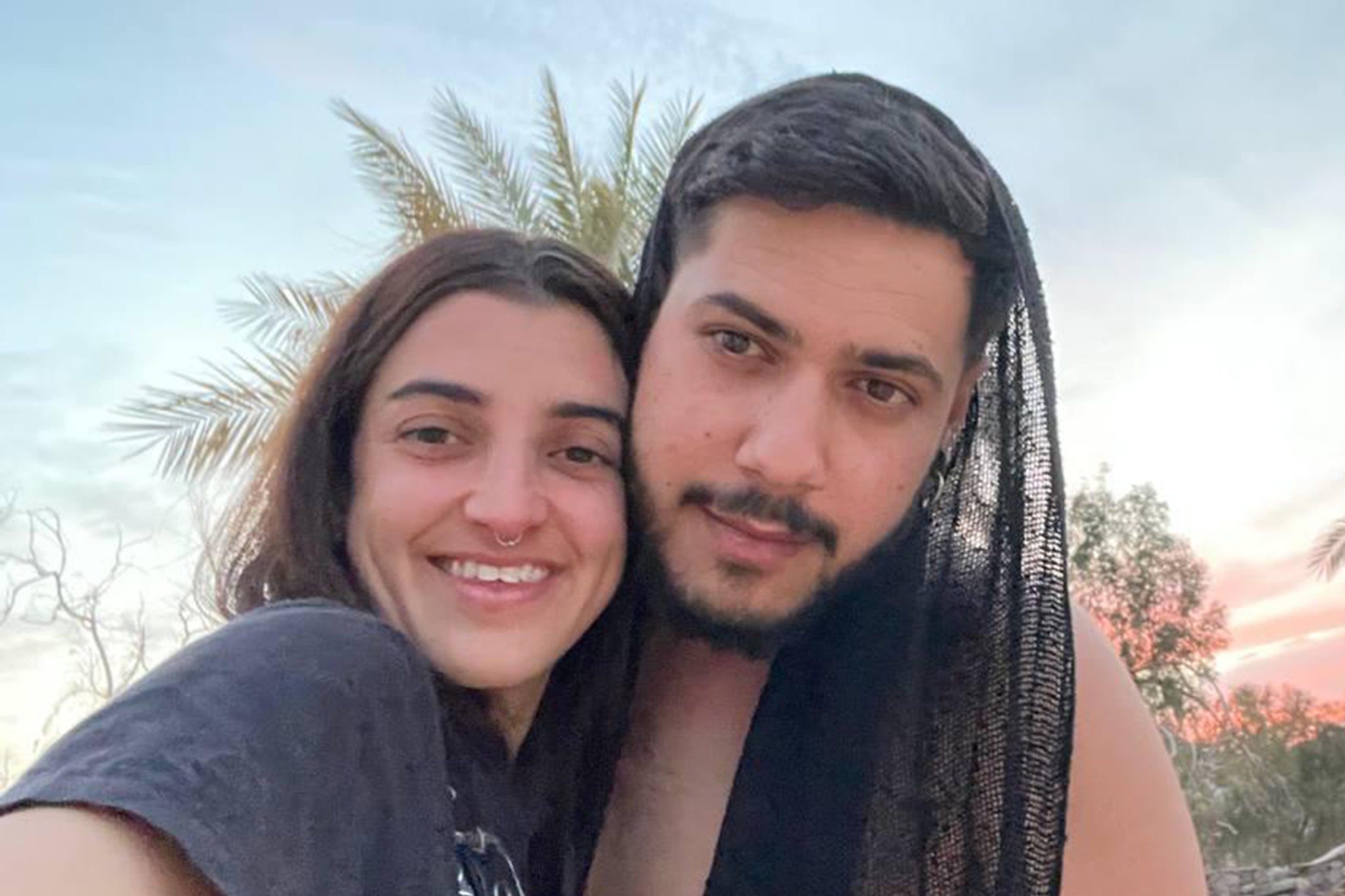
The Nova festival took place in desert scrubland three miles from the border with Gaza – close enough to see the lights from the territory twinkling in the dark. It is thought that the 3,000 Hamas militants who invaded after sunrise on 7 October didn’t know about the party, but, having stumbled upon it, they surrounded it from two directions; the 3,500 partygoers were sitting ducks.
The first they knew about the attack was when rockets started going off in the air at 6.29am. Some of them thought the noise was from fireworks, but they quickly realised they were being targeted with missiles.
“There were thousands of rockets, and although we are used to seeing them, I could see quite quickly this was different – there were so many of them, and they were going off in all directions,” says Ziv, who lives in Tel Aviv. “I said, ‘Let’s go home.’” She got in a car with Eliya, Amit and Karin.
Even when a friend phoned to tell her that someone had shot at their car, Ziv didn’t realise the true extent of the danger they were in. The biggest number of terrorists the local police had ever been trained to handle was 20; it was never expected that 3,000 people would cross the border at multiple points, overrun the local army bases, and briefly invade southern Israel.
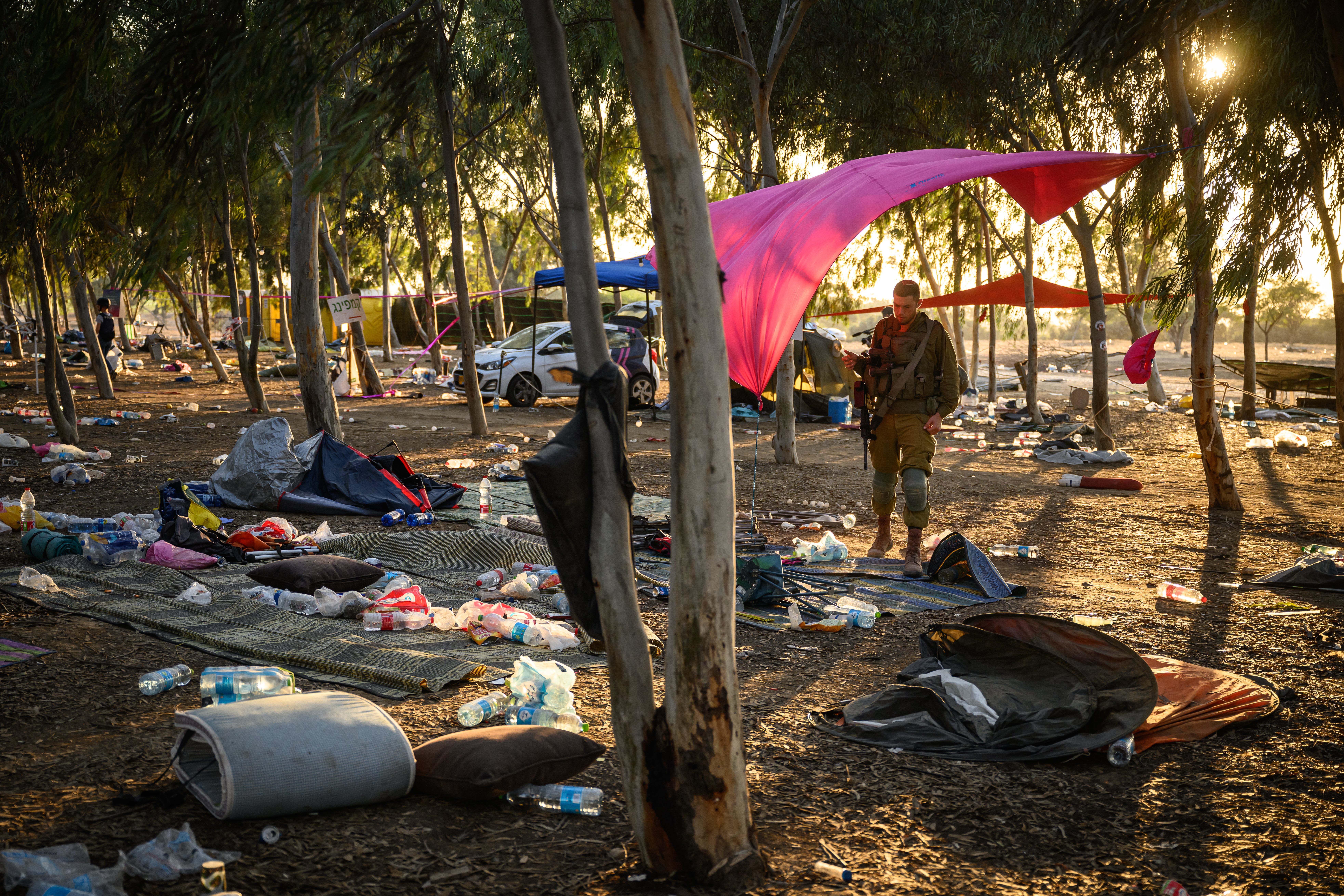
“We thought maybe it was a sniper on the border,” recalls Ziv. “But then the rockets kept coming. There was a lot of chaos on the roads, and so we chose to get inside a small shelter instead.”
The shelter had a picture of a bluebird in it – the story of what happened in the “bluebird shelter” remains one of the most dramatic from 7 October. Like many shelters across southern Israel, where residents have 15 seconds to escape from rockets after a siren has gone off, it had no door, as it was designed only to protect against attacks from the air and shrapnel. It was meant to accommodate 14 people, but more and more kept arriving to hide from the rockets that were now raining down on them.
Among the last to squeeze in were two old friends, Hersh Goldberg-Polin, an American Israeli, and Aner Shapira, whose mother had been born in the UK. Also there was a Bedouin security guard called Osama from a nearby farm. There were 29 people in the shelter. Four of them would be taken hostage, and only seven would make it home alive.
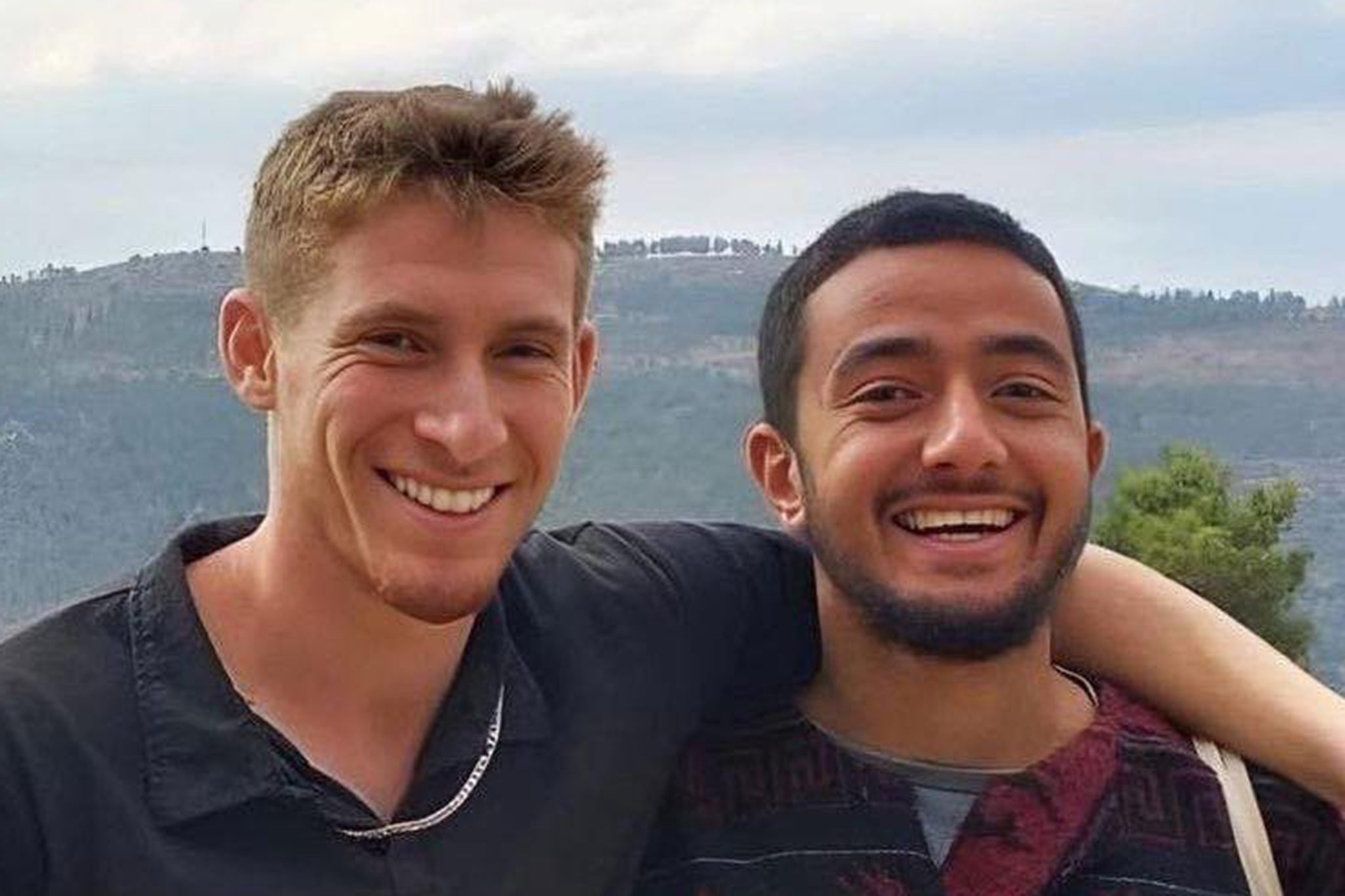
Aner, a talented musician, was on leave from his mandatory IDF conscription, where he had been picked for the elite Orev division of the Nahal Brigade – he had already disappointed army chiefs by telling them he wanted to leave when his service ended and pursue his dream of making music.
To try to make sense of the chaos that had erupted at the festival, he got in touch with his army commander, who told him that terrorists had infiltrated the country and that he was trying to reach his unit. When Aner and Hersh arrived at the shelter to escape from the rockets, Ziv recalls: “Aner told us that a war had started and that if anyone came, he was going to try and do something. He told us that if there was a grenade, he would throw it, but he would need someone to continue when he stopped. And that is what he did.”
The story of Aner’s extraordinary bravery is told in the film, alongside footage. While almost everyone else ducked, Aner stood by the door with only a broken beer bottle as a weapon. Footage of Hamas militants arriving was caught by the camera of a car outside the shelter. First, we see Osama go out and try to remonstrate with them in Arabic, explaining that these were civilians and should not be targeted. He was shot and killed.

And then we see one... two... seven grenades in total being thrown out of the shelter, before the eighth blows up, killing Aner instantly, tearing Hersh’s arm off, and injuring many others who were hiding there. And then the Hamas militants walk in, and shoot and grab four people.
For Aner’s family, the film is an important reminder of the wonder of their son, who, just a few months earlier, had argued with an army boss that if anyone threw a grenade at him, he would throw it back – only to be told he was being preposterous. But those in the shelter recall how, singlehanded, he held off the terrorists for 44 minutes.
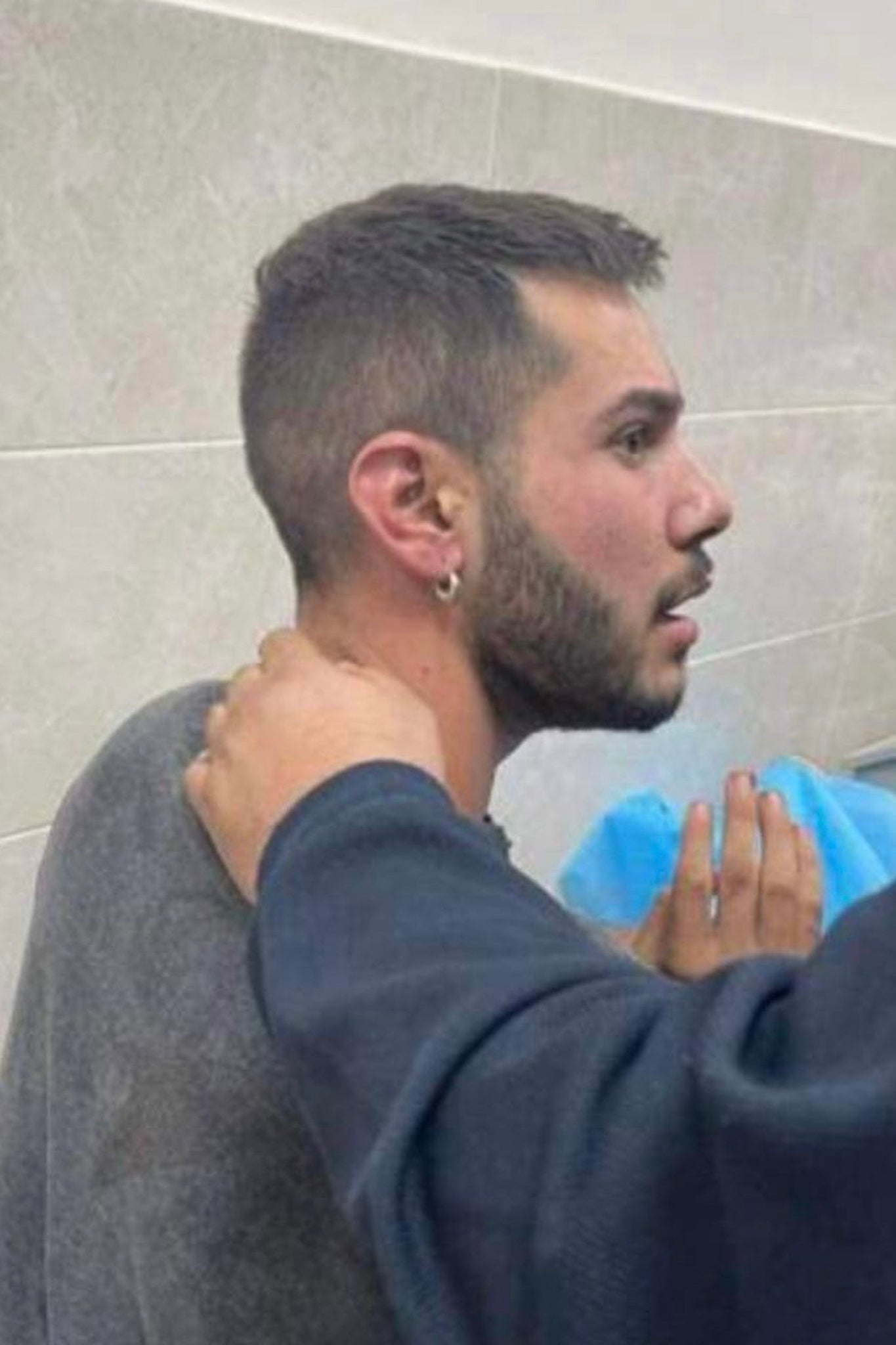
“He could have run, but he took control and died doing something so brave,” says his mother Shira, also in London for the premiere. “He wasn’t sitting there frightened, but doing what he always did – thinking outside of the box. He was very alive when he died – he was being proactive.”
Aner’s relatives are close friends with Hersh’s family; the trauma of Hersh’s murder a few months ago, after he had spent nearly 11 months in captivity, means that their pain, too, is uncomfortably close to the surface.
Some of those who survived the Hamas attack have taken their own lives, while others have formed their own community and taken solace from one another.
Kfir Hod, a student, helped save another festival-goer who had gone into shock by picking him up. Today, he says, what keeps him going is making sure he remembers the friends who died – Shaked, Gili, Avraham, Uria, Forti, Shaiand – and telling people about them. “These were not people of violence or hatred; they were people of love, pure love.” In a rare happy ending – a sign that, for some, things may be moving on – Kfir says he has started a relationship with the cousin of the man he saved.
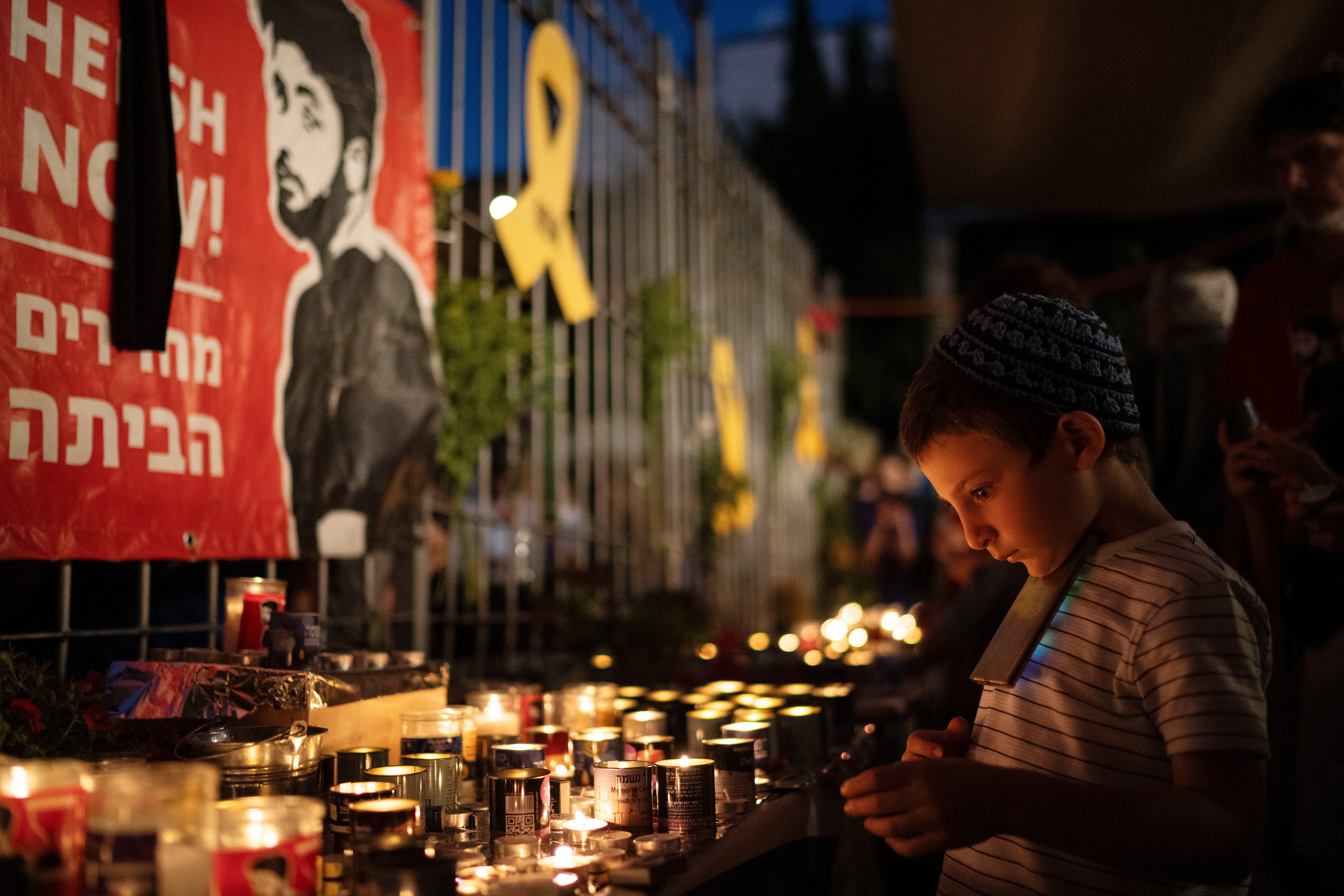
What happened to Hersh and the other hostages weighs heavily on Ziv. Eliya was holding her hand, injured but alive, and then suddenly he was being pulled away from her. There were bodies on her, and she fainted. When she became conscious again, Eliya was gone, and her nephew and his girlfriend were dead. She struggles to think about all the friends she’s buried.
Ziv has seen a photo of Eliya arriving in Gaza, but there has been no video, no news, and none of the hostages who have so far returned have seen him. While there is a growing fissure in Israeli society over those who favour a deal with Hamas – any deal – to rescue the hostages and those who would prefer to fulfil the aim of finishing off Hamas, Ziv refuses to be political. There doesn’t seem to be any point, when she has so little control. Her focus is elsewhere, on the hope that she will one day see her fiance again.
So she travels, she talks, and she tells people about her Eliya. “He is alive,” she insists. “He has to be.”
‘Surviving October 7th: We Will Dance Again’ can be seen on BBC iPlayer






Join our commenting forum
Join thought-provoking conversations, follow other Independent readers and see their replies
Comments